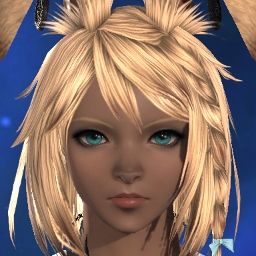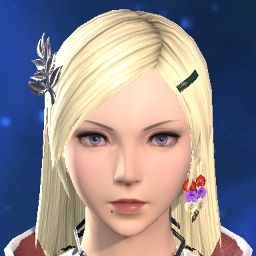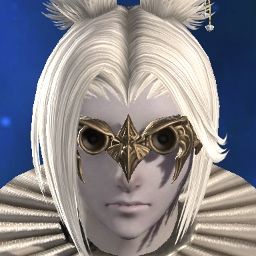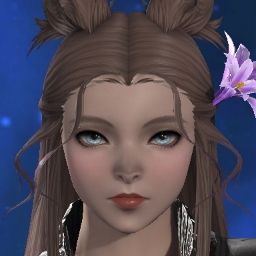And it does not matter because there are people out there who feel sympathetic to him. So if they look at it from his perspective alone then he is right, which is exactly your argument. (Which means people can never have a true discussion because most characters always believe that they are right) One cant just go around and suddenly say that it does not count for character x just because they are not shown in a great light. If you are allowed to argue in this case for one character, then its possible to do so for everyone.
And no I would not and I am also not lying to myself. I have people that I lost to death but as most people do, we learn to live with it. I would feel horrible getting those loved ones back by sacrificing others. Because I understand that these people that died also have loved ones..and I am not sure if those that came back would be fine with it..I would not be fine with living again, while knowing that this meant unknown amount of death..
Emet is also a bit blind in that regards because he just simply only cares about the 75% that are in Zodiark..but not only are those that sacrificed themselves those who survived the original attack but it was also only one city..Emet is only caring about those..not those that died in Amaurot from the calamity itself, not of those that survived it all and got split, not of those much higher amount of ancient ones that had no chance at all because Amaurot only did something when it was at their door step. We are from Amaurot and thus its quite clear that the souls of those ancient ones are reborn again..which means that probably a lot of people that are living on the source and shards are ancient beings. He does not care about those. His plan was not to bring the souls together and then at least let other Ancient and Amaurotines survive. No his goal will include his people too, one of them (us) even being someone he really knew and yet was ready to even go so far as to destroy our whole existance so that we would have never been born again.
And SE made it clear with the stances of the Scions, with showing Thancreds resolve in letting Minfilia go and giving the new life Ryne a chance at having a life, that they are on the side of letting go of the past. Hades is slain in a brutal way with the scions coming in and Thancred splitting the crystal so that Hades is hit with who knows how many shards which will probably hurt quite a bit. He is the monster in that stiuation, Ysthola calls him a being from hell and the whole scene is shown as us being the good ones. Only we listen to him when he finally understands and let go, the rest only cares if we are alright. This is not the sign of someone being shown as a tragic hero.
Thread: Emet-Selch Is Not That Tragic
-
11-14-2019 07:55 PM #71(2)
-
11-14-2019 07:56 PM #72
Taking the Jaws example.
Sure Jaws was good in a one dimensional aspect, but this type of villain tires out pretty quickly after the first event. Jaws 2/Jaws 3 etc were all 'been here done this' low interest experiences. This mirrors the Zenos story arc to date.
We beat Zenos......Just when you thought it was safe to go back in the water - 'oh look there's another Zenos' ....and so on.
This is the issue with one dimensional villains - repeatability. Yet that is precisely what is being handed to us with this character.(2)
-
11-14-2019 09:02 PM #73
They kinda tried to pull a... sympathy (?) card on us before the last battle. Turns out he is just... a nihilistic, thrill seeking, bored and lonely psychopath. I can see how people didn't warm up to that excuse.
...personally it resonated with the mmo murder-hobo within me just enough to offer to be his friend, but they reeeally didn't do much with him until that point.(2)
-
11-14-2019 09:06 PM #74
Except the Minstreling Wanderer did? The entire description of Hades EX does?
I'm not really inclined to take the character's "moral relativism" line as words to live by when he is the one responsible for all the atrocities in question, and the writers seem to have a lot of trouble with consistency on the matter of "moral relativism". Shadowbringers presents the jarring situation where the narrative pushed far harder to dehumanize one of Selch's victims -- Vauthry -- while entirely excusing Selch for his creation, going so far as to imply it was "heroic" for him to corrupt an unborn baby (without seeking the mother's consent, no less). Why is that?
On a MUCH smaller scale of destruction in comparison, Zephirin killed Haurchefant in the name of the greater good of Ishgard, but I don't recall ever being told he was a tragic hero for it. In fact, I was given the option of wanting to tear his heart out -- and no one popped in to say WELL UHM ACTUALLY
Yet here we are in this thread, being asked by some to not only consider Emet-Selch heroic by his standards, but by ours as well, lmao. IttyBitty has a solid point, I sincerely doubt there would be nearly the defense of Emet-Selch's actions were he not "Foxy Grandpa". It's lazy writing to excuse the evils of one character and condemn the same evils of another based on whether or not the character is meant to be a fandom darling.(4)Last edited by Puksi; 11-15-2019 at 03:28 AM.
-
11-14-2019 10:38 PM #75
The Hades EX description is weird I agree. But then its possible they mean it as a "hero and champion to his people". You know, one mans hero is another ones villain? Gonna check the japanese text, since this piqued my interest.
Not sure what you mean about the moral relativism line. Its not an excuse. Its a matter of fact statement without malice (which does make it more scary on some level if you assume that his reason of not seeing us as people might hold any amount of truth). Also, by envoking moral relativism at all, instead of just dismissing us outright, he indirectly acknowledges our side of the coin too.
Not sure how much of Vauthry was his fault. He infused him with light... but was his personality a result of that? Or of a bad upbringing? Guess we'll never know. Compared to the millions of lives he ruined, I don't think Vauthry would be that high on the list.
Comparing Zephirin to Emet aint exactly fair, as one had a whole expansion to thrive, while the other is basically a faceless mook henchman at best. Try it with Zenos. Most people hate him, and I would argue that his chara and design is much more fan-bait than Emet. A well defined and vaguely sympathetic backstory with large impact on the greater story can do wonders.
Anyways, fans gonna fan, and I dont think the more rabid fans that see him as a hero bother to even argue the finer points of his morality.
EDIT: went over the japanese Hades EX description. The song is mentioned as the other "Requiem to the Hero". I presume this also refers to Emet (also reference to Stormblood possibly?). The rest of the text basically rewords what the minstrel said at the english unlock about the Night's Blessed tradition: its implying that Emet naming himself Hades instead his seat name before the battle carried great meaning and determination on his part. Paraphrasing a lot, but I'm too lazy to write up a proper translation. The word "hero" is still used in the songs name, but the rest is mostly fluff and doesn't really polish up Emet as the english text.
Full text for the interested:
異世界の詩人が詠んだのは、もうひとりの「英雄への鎮魂歌」。
彼は、与えられた責務を示す座ではなく、真の名を明かし、名乗り、戦った。ならば、
闇を奉ずる「夜の民」の風習に従い真の名を以て葬送の儀式を執り行なおうこれは、その強き想いを身に刻み、
忘れぬための戦いなのだ。(2)Last edited by Lersayil; 11-15-2019 at 01:07 AM.
-
11-14-2019 11:26 PM #76Player
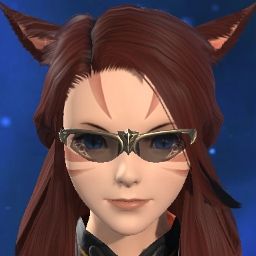
- Join Date
- Aug 2013
- Location
- Gridania
- Posts
- 990
- Character
- Avalen Koma
- World
- Gilgamesh
- Main Class
- Arcanist Lv 100
Emet-Selch, imo, is indeed a tragic villain. While perhaps the Ascians lead to their own destruction with their unchecked hubris, they equally were trying to spur on progress for their people with creating new beings and things (granted it also sounds like it was a d*** measuring contest for them too).
Regardless, Emet-Selch is in a quite dubious situation. He is a hero for his people and is devoted to bringing them back after the climatic events and sacrifices that took place. All of those sacrifices of family and friends to summon Zodiark, to only lead to their inevitable downfall anyway with Hydaelyn coming in and stopping Zodiark anyway. His actions are still evil and terrible but they are fueled with passion and countless amounts of time to see this through. To bring back and save his people.
It's ironic that some people here consider Ardbert a hero but not Emet-Selch when in the 3.0+ arc, he and the then WoD were doing the exact same thing and they didn't care what they destroyed if it meant they could save their home.
And that's what makes it tragic, characters driven to terrible circumstances when they want to, in fact, save others. The evil acts in between aren't hidden but the emotion evoked from the circumstances helps us sympathize. Because in most cases, lots of people would probably do the same. I think the PC resonates with this to an extent.
Think about your family and friends. I'd imagine, if a lot of you faced similar circumstances, you would easily choose to fight anyone to save those important to you, if you could. That is the feeling Emet-Selch and characters like him latch onto.
By proxy, Emet-Selch is not unlike Dhaos from the Tales of Phantasia, trying to fight back against inevitable circumstances.(4)Last edited by Havenchild; 11-15-2019 at 11:24 AM.
-
11-15-2019 03:04 AM #77
The tragedy was that he survived the sundering and had to remember the sacrifice his people made and live with the guilt/shame that was his failure to save them for centuries to come. This became his driving force to ensure their sacrifices were not in vain which over time has essentially turned him into an extremist - although to a degree his desire may have also been twisted by Zodiark so that he would always view the god as the "be all end all".
I'd wager he's willfully blinded himself to the idea that the new mortal beings are also alive just so he would not give up on his people (an idea he has considered multiple times). But only at the end of the line did he finally realize and make peace with this.
"You either die a hero or you live long enough to see yourself become the villain."(3)Last edited by Bobkitty; 11-15-2019 at 03:11 AM.
-
11-15-2019 03:08 AM #78Player
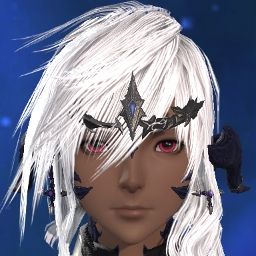
- Join Date
- Jan 2013
- Location
- New Gridania
- Posts
- 1,712
- Character
- Aribeth Lightbringer
- World
- Behemoth
- Main Class
- Gladiator Lv 90
I don't see Ardbert as hero I see him tragitic anti hero who was mislead, realize that it was the Ascian who tell them how save they world. he and his friends were be used to get Ascian goals achievement. remember how it was Emet-Selch who create the final sineater. Emet-Selch has no redeem feature yes he is mutative he want make use the warrior of light to his own end see that is issue with power in corrupt and absolute power corrupt absolute. he understood the game he was play the question is do we. look how he behavior was simple in nature of his desire to control the warrior of light he want make them into ultimate sineater. he knew what was going better then the scian truthful he didn't know as much as he throught he did. Hydialyn chose her champion better the Emet-Selch realize she did. the game has not work in the ascian favor. a Genocidally cult can act to make you sympthical to the goals, it part how they control you. it was all an act till end. through I think at minutes he was died that wasn't the act anymore when your died you realize that you over play your hand. I found funny how people sympthical with those that seek they destruction maybe it just spirit of the ages.
(0)
-
11-15-2019 03:21 AM #79
It could be they meant "hero" in a sort of squint sideways and think symbolically way, but apparently enough people took the wording at face value that Yoshi-P had to remind us the Ascians killed billions, and calling Hydaelyn the evil one was shortsighted--so I would count that as a failure of the writers in conveying their intent. There were better ways of expressing how tragic the Amaurotines' fate was.
The "moral relativism" line definitely conveyed how little Emet-Selch thought of the lives he was seeking to destroy, but since the writers were pushing for sympathy for him, it also sounded a bit like excusing him. It certainly was taken that way by some players.
And the writers are very selective who gets that sympathy, even if they do equally horrible things. I wouldn't say Zephirin was a nameless mook, but Zenos has no higher motivation than relieving his "boredom". Thordan, then? He was the driving force behind much of Heavensward, he thought his actions were just for the preservation of Ishgard, but there was never any doubt in the narrative that he was wrong. After he and the mooks were dealt with, there was no mention of any of them being heroic in their efforts, no requiems to commend them for it. All that, and their atrocities don't even put a dent in the scope of what the Ascians committed.
The writers also seemed to try a similar sympathy thing with Fordola in Stormblood, but that went over like a lead balloon, thankfully.
TL;DR: The charisma of an antagonist is all well and good, but the writers shouldn't really lessen the impact of the evils they do for the sake of it.
As for Vauthry, quoting the Innocence Triple Triad card, he was "corrupted by the power of a Lightwarden whilst he was yet a babe in the womb". Considering how a Lightwarden twisted Titania from a benevolent ruler to everyone's favorite trial, it seems a very safe bet that Vauthry's actions were entirely of Emet-Selch's making. It was established that no one short of the WoL could resist the corruption of a Lightwarden, and it was only by Hydaelyn's blessing that we resisted it for as long as we did. Trying to hold Vauthry responsible is like blaming Thancred for the massacre at the Waking Sands.
But the writers, although they showed the player the truth of the situation by the Echo, never allow us to reveal it to anyone. Instead, we are simply made to smile and nod as usual when the driving narrative of Eulmore even in patch was "man, Vauthry sure was evil". The writers hold one of Emet-Selch's victims to a higher standard of conduct than Emet-Selch himself, and there seems to be no actual reasoning for it except they favored him. So for me, at least, it felt very not heroic to remain silent on that situation alone, yet be nudged by the narrative to convey sympathy towards the actual cause of the evil. Not just sympathy, either, but to accept the narrative that he was heroic.(6)
-
11-15-2019 03:31 AM #80Player

- Join Date
- Jan 2013
- Location
- New Gridania
- Posts
- 1,712
- Character
- Aribeth Lightbringer
- World
- Behemoth
- Main Class
- Gladiator Lv 90
through I think Emet-Selch is good lesson to all, if he was really we be accurse him of being racist. here is a suggest take everything you know about Emet-Selch and put him into today political climate and ask your self is he a good guy.
when you doing you have realize he on same level as hiltor was, like hiltor he view his race as supreme like hiltor he want mass gencidal of any race he viewed as infer to his'. In this way the question whether he a hero will be pretty easy answer. Good and evil is easy question when line a villian up with histrocial figure. I agree with the op that he wasn't a tragic.(2)



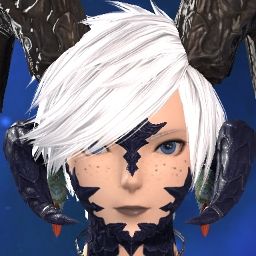


 Reply With Quote
Reply With Quote
